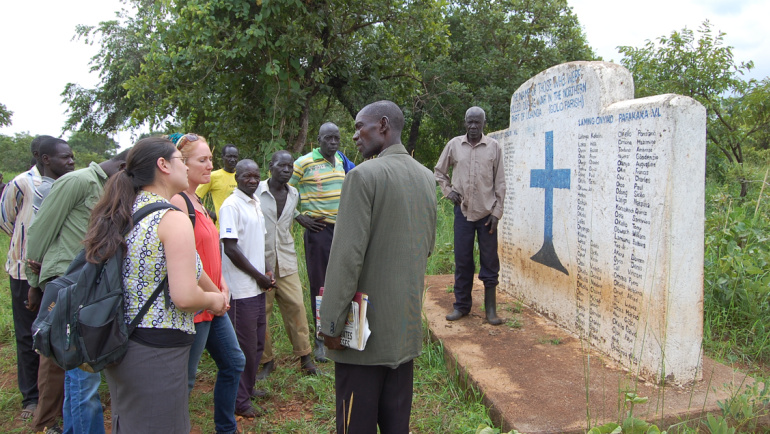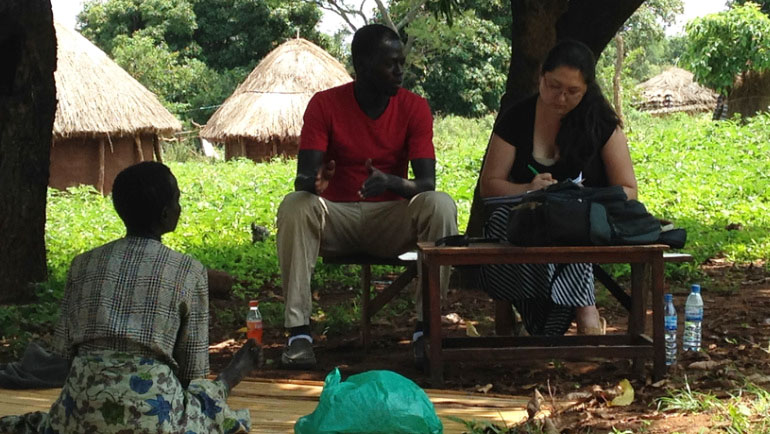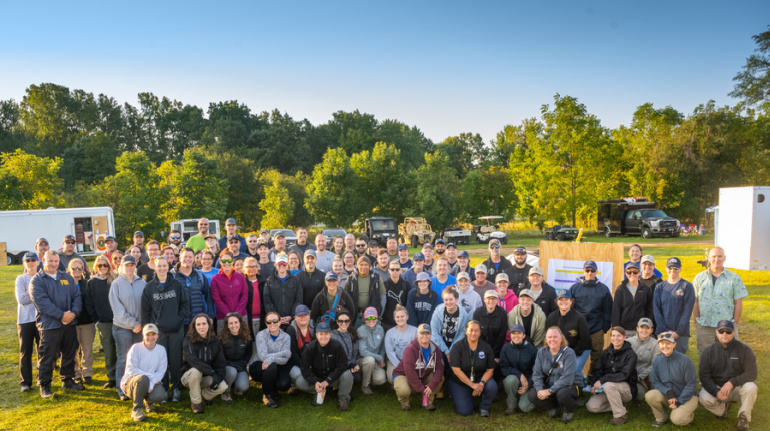
Jaymelee Kim’s specialty is death.
Kim, a Wayne State University assistant professor of biological anthropology and a forensic anthropologist, works on a variety of research projects and has broad community engagement.
She works in the Wayne County Medical Examiner’s Office, has assisted at mass graves in Uganda, collaborates with the FBI and other agencies to identify bodies from cold cases, and is passionate about helping survivors of human right violations.
“I’m hope that being at Wayne State, I can bring that research and community outreach here,” said Kim, who started at the university this fall.
Kim wants to help students use biology, culture archaeology and linguistics to answer questions about forensic human rights, mass violence, social inequity, and how trauma affects the body physically and mentally.
“Graduate students who are interested in working with me can build those skills,” she said.
Kim said students in Wayne State’s anthropology department are already a great fit for the projects she works on.
“One of the reasons I really love Wayne State’s anthropology department is there is a very sort of applied and practical focus,” Kim said. “I think my research and what I'm doing can really thrive because we’re already attracting students interested in that sort of work and encouraging that. I’m excited to bring in more students who like this kind of applied work and want to do community outreach. It will ultimately benefit the community, which is the goal.”
Medical examiner’s office
Kim was working with the Wayne County Medical Examiner’s Office before joining Wayne State.
Since 2019, she has assisted the office in a variety of work, including helping identify causes of death and identifying bodies by estimating age, sex or pre-existing health issues.
“I'm a forensic anthropologist, so I do skeletal trauma analysis,” Kim said.
She often is requested to report to crime, disaster or accident scenes for a variety of reasons, including to search for and collect human remains that might be hard to identify. She also uses her expertise to assist in identifying a person by finding pre-existing traumas.
Kim has used her expertise to determine which direction a car was traveling when it a hit a person by studying the impact on the bones. She’s also been able to tell whether a trauma occurred after death.
"Any information that we can pull out and provide, we do,” Kim said.
Research projects overseas
Kim, who has a doctoral degree, has worked extensively in Uganda, blending forensic science and human rights. She works primarily with mass graves and sites of improper burials.

“We’re trying to see how the graves and the improper burials impact the surviving communities,” she said. “What do the surviving communities want done with those remains?”
Her team’s approach is much different than the typical anthropologist approach, as they research what the surrounding communities want done before work begins.
“There is a huge cultural impact, because you've got different beliefs there. For example, they might believe the dead continue to interact with the living,” Kim said. “So, for some of the ethnic groups we’re working with, if someone is improperly buried or dies a violent death, they could haunt people, they could possess people and they could cause your crops to fail. So, we don't want to assume that it’s always going to be good for a forensic anthropologist to be digging up bodies. It could have a cultural impact that does a lot of harm.”
Kim said the beliefs of the locals are very important to her team members and they want to respect their wishes. Kim feels it’s important to figure out how they can do forensic anthropology that doesn’t cause any harm.
“We are adding a human survivor element,” Kim said.
Community outreach
Kim conducts several community outreach projects. One of them is with Operation UNITED (Unknown Names Identified Through Exhumation and DNA), co-directed by Leslie Larson (FBI Detroit) and Sgt. Shannon Jones (Detroit Police Department).

She works with the FBI and other agencies on cold cases to identify bodies.
“We’re going out and doing cemetery exhumations to take DNA samples to identify them,” Kim said. “The project's been going on for five years.”
Kim said the Operation UNITED team typically works on the cases for a week at a time, multiple times per year.
“It’s been huge; we’ve investigated more than 200 unidentified cases and we’ve had 20 identifications already,” she said. “I’m excited to be working on these identification projects and resolving what happened to these folks, where their families are getting some answers.”
Kim said she’s interested in bringing in students to work with her on Operation UNITED. Those students should be interested not just in the science, but the humanitarian aspect.
She also engages the community in other ways. When she was working in Ohio, she worked with the survivors of human trafficking, and she envisions expanding that work to the Detroit area.
“Most human trafficking is done by people the victims know and trust, like their parents, spouse or a friend,” Kim said. “I work with survivors, to help them reintegrate into the communities they’re from. They have to learn how to sort of get into a life where they’re not going through that kind of trauma all the time.”
